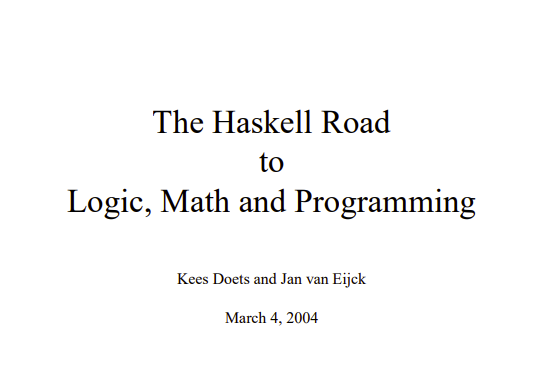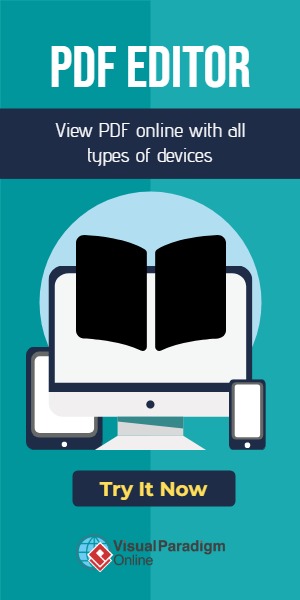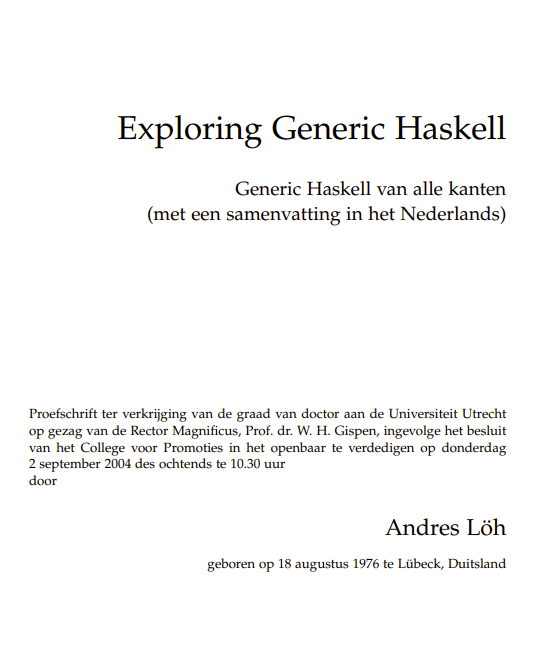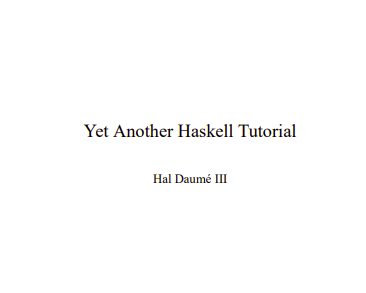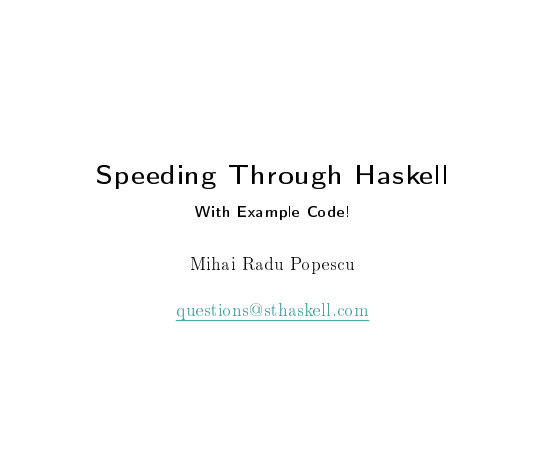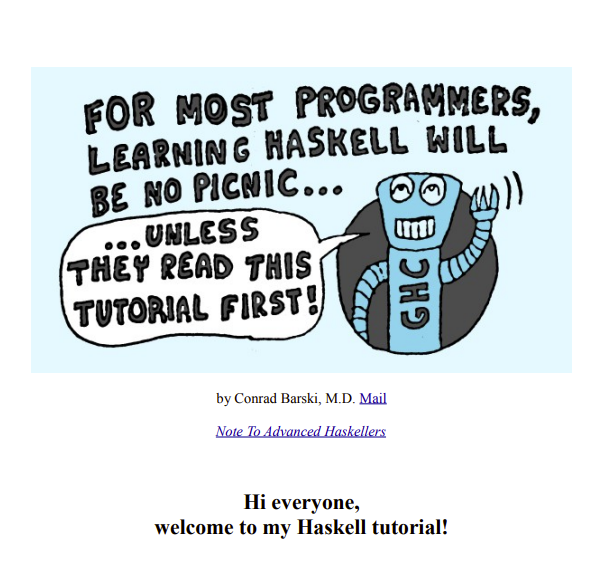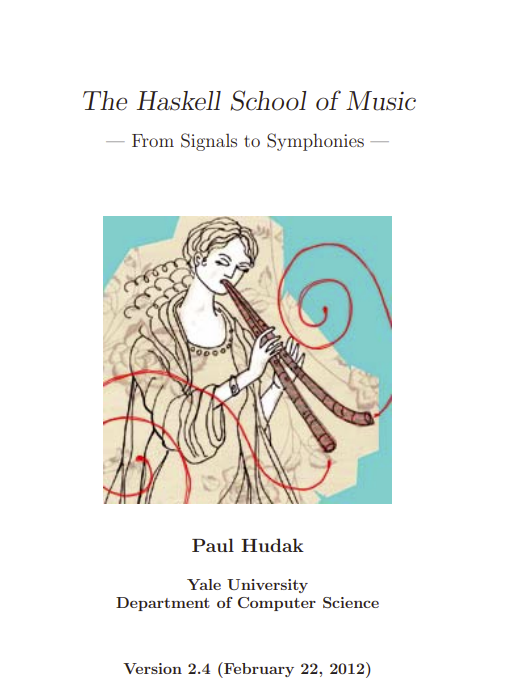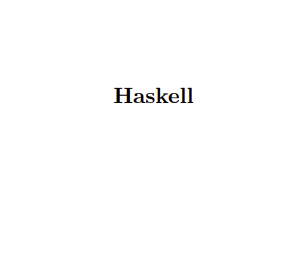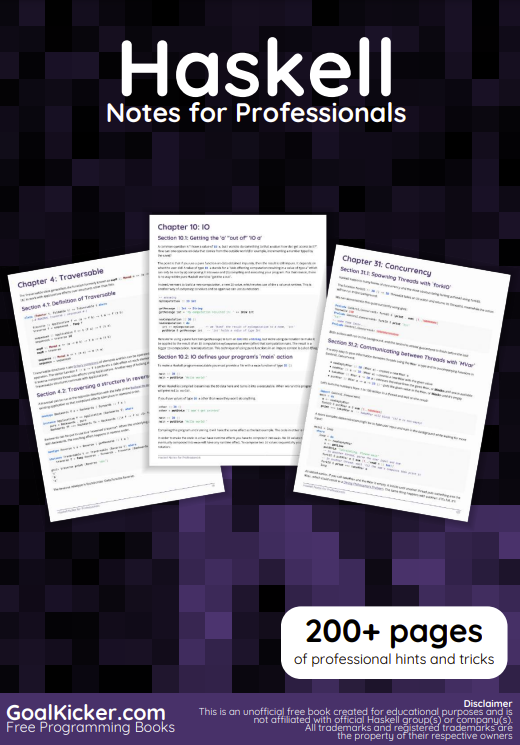Purpose
Long ago, when Alexander the Great asked the mathematician Menaechmus for a crash course in geometry, he got the famous reply “There is no royal road to mathematics.” Where there was no shortcut for Alexander, there is no shortcut for us. Still, the fact that we have access to computers and mature programming languages means that there are avenues for us that were denied to the kings and emperors of yore.
The purpose of this book is to teach logic and mathematical reasoning in practice, and to connect logical reasoning with computer programming. The programming language that will be our tool for this is Haskell, a member of the Lisp family. Haskell emerged in the last decade as a standard for lazy functional programming, a programming style where arguments are evaluated only when the value is actually needed. Functional programming is a form of descriptive programming, very different from the style of programming that you find in prescriptive languages like C or Java. Haskell is based on a logical theory of computable functions called the lambda calculus.
Lambda calculus is a formal language capable of expressing arbitrary computable functions. In combination with types it forms a compact way to denote on the one hand functional programs and on the other hand mathematical proofs.
Haskell can be viewed as a particularly elegant implementation of the lambda calculus. It is a marvelous demonstration tool for logic and math because its functional character allows implementations to remain very close to the concepts that get implemented, while the laziness permits smooth handling of infinite data structures.
Haskell syntax is easy to learn, and Haskell programs are constructed and tested in a modular fashion. This makes the language well suited for fast prototyping. Programmers find to their surprise that implementation of a well-understood algorithm in Haskell usually takes far less time than implementation of the same algorithm in other programming languages. Getting familiar with new algorithms through Haskell is also quite easy. Learning to program in Haskell is learning an extremely useful skill.
Throughout the text, abstract concepts are linked to concrete representations in Haskell. Haskell comes with an easy to use interpreter, Hugs. Haskell compilers, interpreters and documentation are freely available from the Internet [HT]. Everything one has to know about programming in Haskell to understand the programs in the book is explained as we go along, but we do not cover every aspect of the language. For a further introduction to Haskell we refer the reader to [HFP96].
